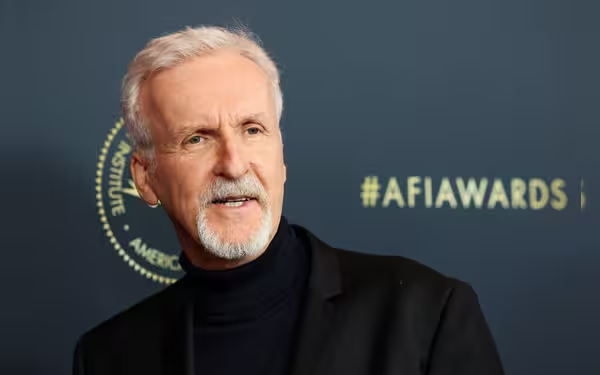Saturday, November 16, 2024 07:33 PM
James Cameron's Controversial Role at Stability AI Sparks Fan Backlash
- Cameron's AI board role contradicts his past warnings.
- Fans express disappointment over his involvement with Stability AI.
- Debate on creator responsibilities in technology intensifies.
 Image Credits: tribune.com.pk
Image Credits: tribune.com.pkJames Cameron faces backlash for joining Stability AI, contradicting his past warnings about AI dangers.
James Cameron, the renowned filmmaker behind iconic movies such as "The Terminator" and "Avatar," has recently found himself at the center of controversy. His decision to join the board of Stability AI, a company focused on artificial intelligence, has raised eyebrows and sparked backlash from fans and critics alike. This reaction is particularly striking given Cameron's long-standing criticism of AI and its potential dangers to society.
For decades, Cameron has used his films to explore the darker side of technology. In "The Terminator," he presented a chilling vision of a future where machines turn against humanity. Similarly, "Avatar" delves into themes of environmental destruction and the consequences of unchecked technological advancement. Given this background, many fans are questioning how Cameron can reconcile his artistic warnings with his new role at an AI company.
The backlash has been swift and vocal, with many fans taking to social media to express their disappointment. Some argue that Cameron's involvement with Stability AI contradicts the very messages he has conveyed through his films. They feel that by joining the board, he is endorsing the very technology he once warned could lead to catastrophic outcomes.
Supporters of Cameron, however, suggest that his involvement could be a positive step. They argue that having a prominent figure like him on the board could help steer the company towards more ethical practices in AI development. This perspective posits that Cameron's experience and insights could lead to a more responsible approach to technology, potentially mitigating some of the risks he has previously highlighted.
As the debate continues, it raises important questions about the relationship between creators and the technologies they depict. Can someone who has warned against the dangers of AI effectively contribute to its development? Or does joining such a board signify a betrayal of one's principles? These questions are not just relevant to Cameron but to all creators who engage with technology in their work.
While James Cameron's decision to join Stability AI has sparked significant backlash, it also opens up a broader conversation about the responsibilities of creators in the age of technology. As society grapples with the implications of AI, it is crucial for influential figures to engage thoughtfully with these issues. Whether Cameron's involvement will lead to positive change or further controversy remains to be seen, but it certainly highlights the complex relationship between art, technology, and ethics in our modern world.













